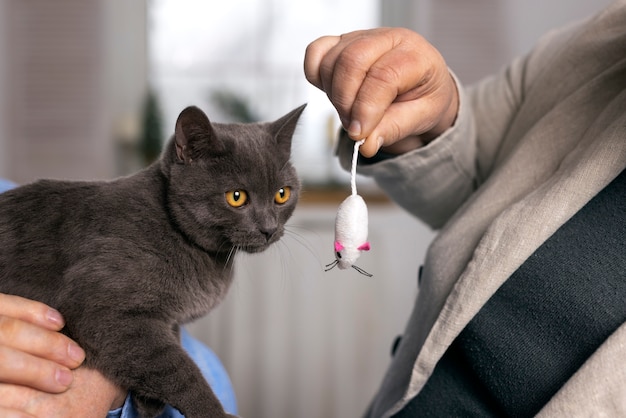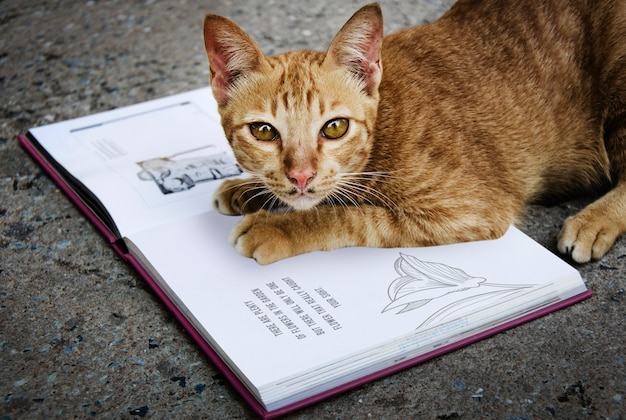Those Troublesome Kitty Ears: Understanding Ear Infections in Cats

Cats are known for their independent nature, but sometimes their behavior can be a telltale sign that something's wrong. If your feline friend is constantly shaking their head, scratching at their ears, or seems uncomfortable, an ear infection could be the culprit.
Why Do Cats Get Ear Infections?
There are several reasons why cats can develop ear infections. Here are some of the most common causes:
- Ear Mites: These tiny parasites burrow into the ear canal, causing irritation and inflammation. Ear mites are highly contagious among cats.
- Bacterial Infections: Bacteria can also cause ear infections, often as a secondary infection to ear mites or allergies.
- Yeast Infections: Yeast overgrowth in the ear canal can lead to infection and discomfort.
- Allergies: Allergies to food, environmental allergens, or even flea bites can irritate the ears and trigger an infection.
- Foreign Objects: Tiny objects like grass awns or seeds can become lodged in the ear canal, causing irritation and infection.
Recognizing the Signs: Symptoms of Ear Infections in Cats
Knowing the signs of an ear infection in your cat can help you seek veterinary attention promptly. Here are some symptoms to watch for:
- Head shaking: Excessive head shaking is a classic sign of discomfort in the ear canal.
- Scratching at the ears: If your cat is constantly scratching at their ears, it could be due to an infection or irritation.
- Redness and swelling: The ear flap or ear canal may appear red, swollen, and inflamed.
- Black or yellow discharge: A discharge from the ear, either black and waxy (ear mites) or yellow and pus-like (bacterial infection), can be a sign of infection.
- Tilting the head: A tilted head can indicate pain or discomfort in the ear.
- Loss of balance: In severe cases, ear infections can affect a cat's balance.
Seeking Help: Treatment Options for Ear Infections
If you suspect your cat has an ear infection, it's important to schedule an appointment with your veterinarian at Express Vets Cumming. Early diagnosis and treatment are crucial for your cat's comfort and to prevent further complications.
Diagnosis
Your veterinarian will examine your cat's ears and may use a tool called an otoscope to get a better look inside the ear canal. They may also collect a sample of ear discharge for microscopic examination to determine the cause of the infection.
Treatment
Treatment for ear infections will depend on the underlying cause. Here are some common treatment options:
- Ear mite medication: If ear mites are the culprit, your veterinarian will prescribe medication to kill the mites.
- Antibiotics: For bacterial infections, your veterinarian will prescribe antibiotics in the form of ear drops or oral medication.
- Cleaning and medication: Regardless of the cause, your veterinarian will likely recommend cleaning your cat's ears with a special solution at home, alongside medication.
Keeping Kitty's Ears Healthy: Prevention Tips
While ear infections can be common, there are things you can do to help prevent them:
- Regular cleaning: Regularly clean your cat's ears with a gentle ear cleaning solution recommended by your veterinarian.
- Parasite prevention: Maintain a regular schedule of parasite prevention medication to keep fleas and ear mites at bay.
- Monitor for allergies: If you suspect your cat has allergies, work with your veterinarian to identify the allergen and manage the symptoms.
- Schedule regular checkups: Regular veterinary checkups allow your veterinarian to monitor your cat's ears and overall health.
If you suspect your cat has an ear infection, it's important to schedule an appointment with your veterinarian at Express Vets Cumming by calling (470) 326-5220 or giving us a visit at 4108 Hamilton Mill Road, Suite 310,Buford, GA 30519. Early diagnosis and treatment are crucial for your cat's comfort and to prevent further complications.



















